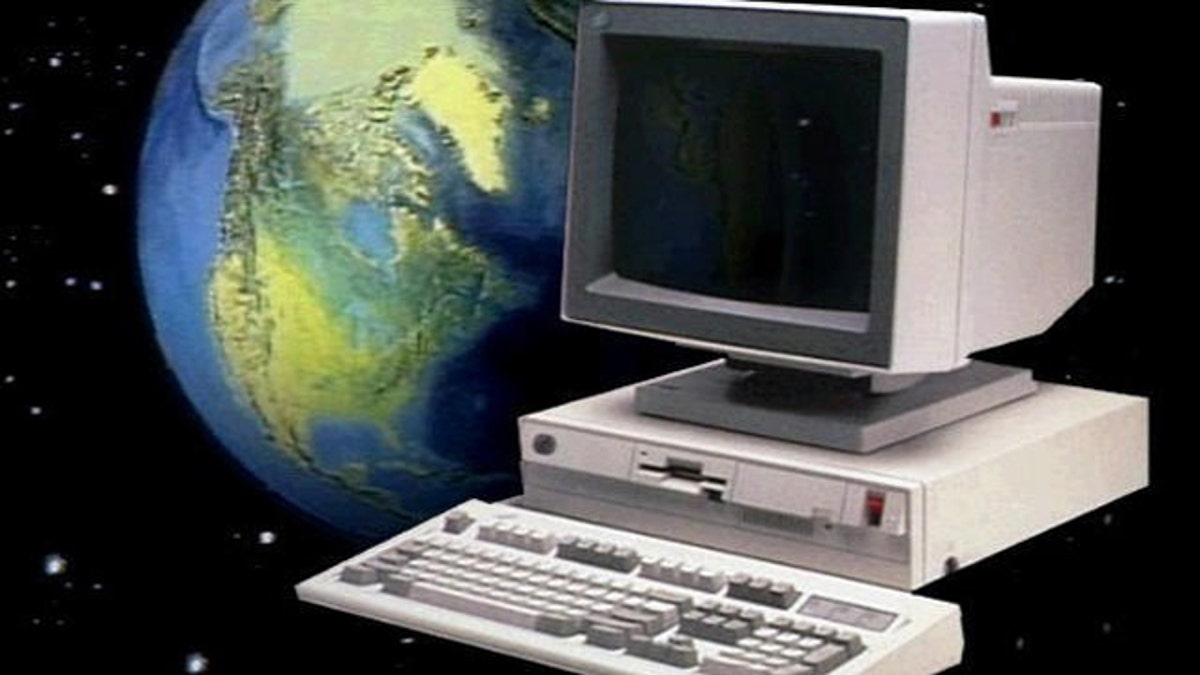
A 1993 computer that could have let an ordinary citizen surf that esoteric, geeks-only thing known as the World Wide Web. (AP GraphicsBank)
Happy birthday, world wide web!
In 1989, Tim Berners-Lee developed a technology to help physicists in universities and institutes around the world share information. On April 30, 1993, the European science agency CERN -- where Berners-Lee worked -- officially made Berners-Lee's W3 software public domain, letting the public at large access it.
Yadda yadda yadda: Facebook, Instagram, Twitter and the rest.
[pullquote]
“There is no sector of society that has not been transformed by the invention, in a physics laboratory, of the web,” Rolf Heuer, CERN director general, said in a statement. “From research to business and education, the web has been reshaping the way we communicate, work innovate and live. The web is a powerful example of the way that basic research benefits humankind.”
To help celebrate what they label “the birth of the web,” CERN has launched a project to preserve and recreate the digital assets associated with the birth of the web.
“For a start we would like to restore the first URL -- put back the files that were there at their earliest possible iterations. Then we will look at the first web servers at CERN and see what assets from them we can preserve and share,” the agency writes on a website associated with the project.
That website -- the first in the world -- was hosted on Berners-Lee's NeXT computer, a cutting edge computer from the company of the same name that was built by Steve Jobs after he left Apple. The website described the basic features of the web; how to access other people's documents and how to set up your own server.
The NeXT machine -- the original web server -- is still at CERN, the agency said. But the world's first website was no longer online at its original address, the world’s first URL: http://info.cern.ch/hypertext/WWW/TheProject.html
Up until this morning, it simply redirected the browser to CERN’s front page. In honor of the 20th anniversary, that URL is back up and running, using the archived copy of the site that CERN has kept on its server the whole time.
For the record, Berners-Lee -- who is often called The Godfather of the Internet -- did not "invent" the Internet, and is quick to dispel any such rumors. In a post on his website, he explains the distinctions between the web protocol he developed and the larger Internet.
"I was lucky enough to invent the Web at the time when the Internet already existed -- and had for a decade and a half. If you are looking for fathers of the Internet, try Vint Cerf and Bob Kahn who defined the "Internet Protocol" (IP) by which packets are sent on from one computer to another until they reach their destination."
Also for the record, no word on whether Al Gore baked a birthday cake.








































